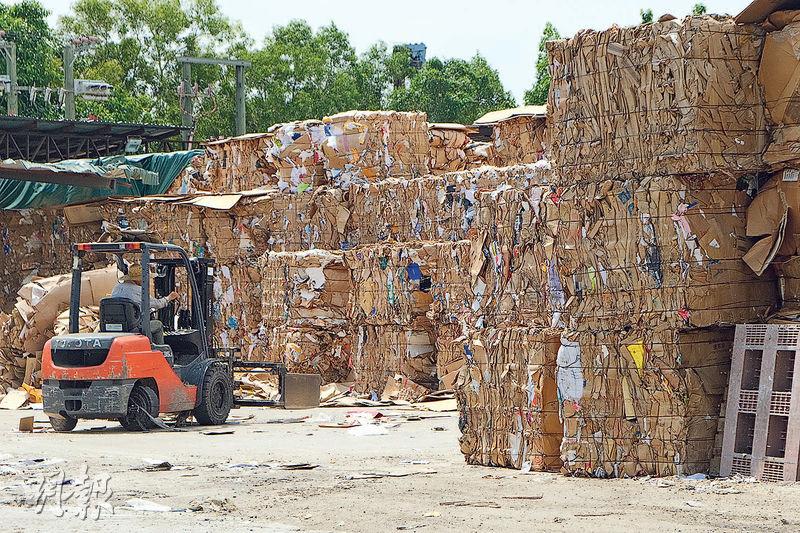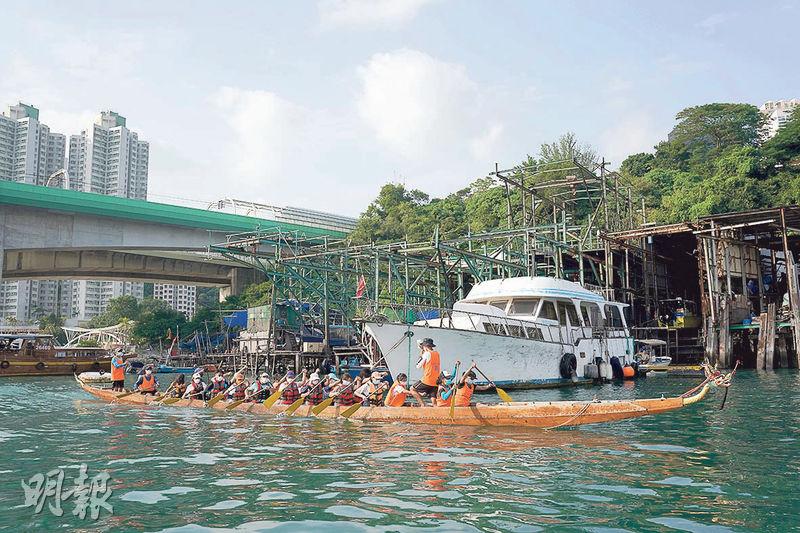英譯概念:Pulp mill to tackle waste paper
【明報專訊】In recent years, mainland China has tightened the import of recyclable materials. This, together with the decline in international paper prices, has affected the local recycling price of waste paper. Recycling volumes continue to decline even though the government is footing the bill with taxpayers' money. To reduce dependence on the export market, the government approved the building of a paper recycling plant at EcoPark in 2018, but the scheme ended prematurely. In the government's 2020 Policy Address, it was further proposed that modern pulping facilities be built at EcoPark. The Environmental Protection Department(EPD)plans to have a pulp mill built on an area of about 1.4 hectares at EcoPark. The bidding process has been completed, and it is expected that the mill will begin operation in 2025, processing no less than 300,000 tonnes of local waste paper each year.
Jacky Lau Yiu-shing, chairman of the Hong Kong Recycle Materials and Re-production Business General Association, who is also a contractor of the project, says he hopes the pulp mill will be completed as soon as possible to stabilise the local paper prices. He says a more satisfactory situation is that taxpayers' money will not be used to subsidise the scheme, and the market will be back on track. Hahn Chu, director of Environmental Affairs at The Green Earth, says that the pulp mill will only be able to handle about 300,000 tonnes of waste paper every year. However, over the past year or so, the problem of recycled paper being soaked with water - so that it can weigh more - has recurred. Chu says the EPD must do a good job of supervision. Even if some of the waste paper is handled locally, about half of it will still be exported to Southeast Asia. If the quality is not good, the competitiveness will be weakened, and recycled paper prices can even drop.
Mock examination question
What challenges might the Hong Kong government face when dealing with waste? Explain your answer.
(4 marks)
(1) Difficulties in oversight
The government may face difficult regulatory challenges when dealing with waste. Take waste paper recycling. According to the source, Hahn Chu, director of Environmental Affairs at The Green Earth, says that even the newly built pulp mills can only handle about 300,000 tonnes of waste paper each year. The problem of recycled paper being soaked with water - so that it can weigh more - has recurred. Chu says the EPD must do a good job of supervision. Even if some of the waste paper is handled locally, about half of it will still be exported to Southeast Asia. If the quality is not good, the competitiveness will be weakened, and recycled paper prices can even drop.
(2) Environmental pollution
When the government deals with waste, it might face the challenge of environmental pollution. Hong Kong mainly disposes of waste by landfilling. However, landfills in Hong Kong are already operating at full capacity, and landfills will also pollute the land. To solve the problem, the government plans to build incinerators to treat waste and turn waste into energy at the same time. While it might cost less to dispose of waste through incineration technology, it may pollute the environment. Take the treatment of food waste. Food waste contains a high concentration of water, which makes it difficult to fully utilise the energy efficiency during incineration. If the food waste contains a high salt content, more dioxins will be released during the incineration process. In conclusion, the use of incineration technology to dispose of waste can pose environmental challenges.
(本刊刊出的文章若提出批評,旨在指出相關制度、政策或措施存在錯誤或缺點,目的是促使矯正或消除這些錯誤或缺點,循合法途徑予以改善,絕無意圖煽動他人對政府或其他社群產生憎恨、不滿或敵意。)
[智學公民 第043期]







